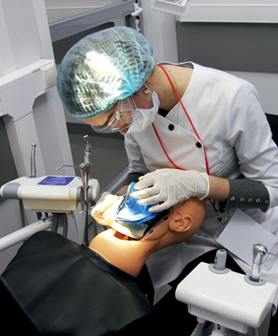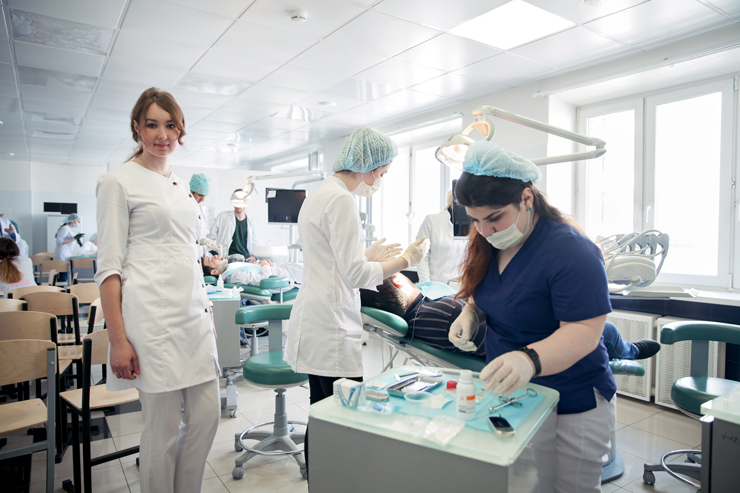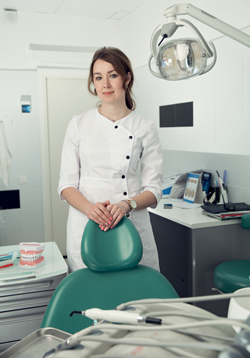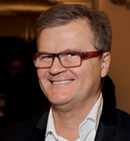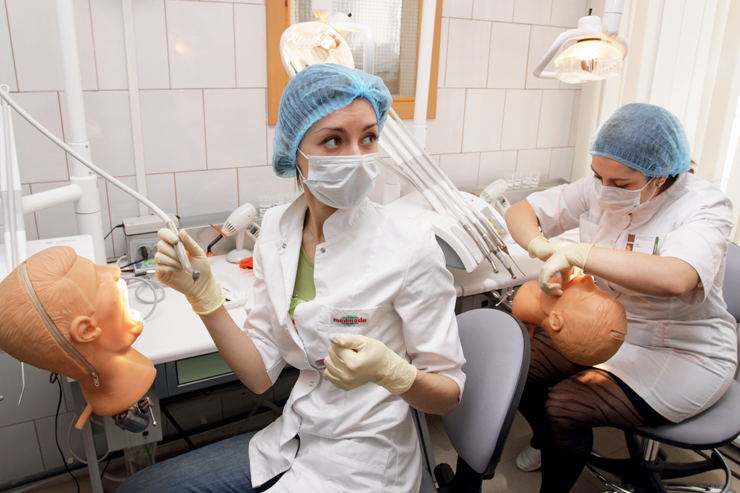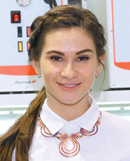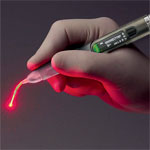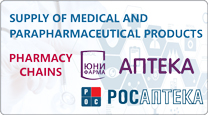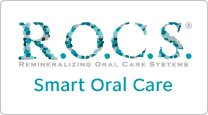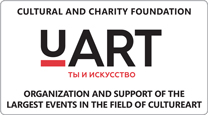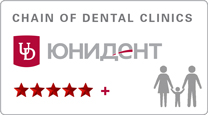Hands Getting Smarter
Text: Yulia Gladova
Photo: Evgeny Dudin, Denis Kuznetsov
Why we should support academic competitions among young doctors
|
Dentist's work requires honed manual skills |
In the last year UNIDENT has supported several large training competitions for the beginner dentists in the leading medical universities of Russia. Participants came from multiple corners of Russia, while the honored guests came from the countries with the most developed technologies in this area of medicine. Such events increase the level of specialists and reveal new talents. But why are these competitions needed in real life and in sense of common future?
Just Stay Calm
Participant of the first stage of the residents' competition ('Olympiad') in I.M. Sechenov 1st Moscow State Medical University, general practitioner, dentist Tatiana Ivanova walks into her office slowly and calmly.
“The Olympiads are like state exams,” she says very quietly,
so you also want to behave yourself and listen. — “There is a competitive
stage. You cure a tooth on a plastic model, a phantom (this time in the task
for the therapists half the tooth was missing and you had to completely restore
it). Then you pull the ticket and answer three questions on theory. The most
interesting thing about the Olympiad: the work will be looked at by your
supervisor, other specialists, the best of the best in Russia, and
foreign guests.” This time, the honorary member
The Olympiad also included the students from Nizhny Novgorod State Medical University, N.I. Pirogov Russian Research Medical University, A.I. Evdokimov Moscow State University of Medicine and Dentistry.
“Such contests show working conditions and competition, which is quite high today,” says Ksenia Babina, PhD in Medicine and Assistant Professor at the Therapeutic Dentistry Department of Sechenov University. “Has the current jury of the Olympiad revealed anything unexpected to you?” — I ask resident Tatiana Ivanova again.
“Actually, I was convinced that I really did learn something by the end of the residency,” she says in her calm manner. Obviously, in the rating of young specialists Tatiana found herself at the right place and does not fall into competition hysteria.
The universities where the Olympiads are held have educational goals. Specialists themselves can also improve their professional level by investing in master classes and seminars — after all, this increases the market value of their work. But what is the social significance of such events?
|
Member of the residents' competition Tatiana Ivanova (left) in I.M. Sechenov 1st Moscow State Medical University |
Generation of Dentists
|
Tatiana is convinced that during the training the doctor needs to master the most modern techniques of treatment |
— “Why do you need any support in your studies?” — I ask Tatiana. — “You are adult smart specialists. Can not you do it yourself?” Tatiana sits in her sterile office of pastel tones, keeps her back very even and does not change her soft expression.
“There is a rapid development of technology in dentistry,” she says. — “Everything changes. Every year and even every half a year. Something new appears all the time. When you listen to specialists who come from France, Italy, you understand: we need to adopt a plethora of new skills. Let alone the more modern systems of processing of root canals, restoration of a tooth. Tools, methods — many things change. It is clear, that it is impossible to use everything at once. To begin with, this is very expensive, new equipment is required. But it is absolutely neceesary to know, to strive, to learn. We have to manage, because if you do not have time to switch to new methods at once, get used to something new, then it will be harder for you. It is necessary to understand that dentistry is a manual work.
In the technique that you use, your hands get used to it and improve with each tooth. That is why experienced specialists are so valuable. Their skills are honed. At the same time, it is much more difficult for them to adjust according to the latest trends, because for this they will have to completely change the techniques of work, methods, habits, and this involves years of preparation. So while we are learning, right now is the best time to learn the newest things. It is important for us to be as modern as possible, to meet European standards.
And it's much easier for us than for people who learned a long time ago. We easily master the new techniques. By the way, we are very eager for everything new and greedily absorb knowledge, and when our technique is already settled, we will lose this ability in part.”
“It turns out, our treatment in the next 10−20 years depends on how much your generation of dentists will master modern methods?”
“Yes,” answers Tatiana, always calm.
|
|
Beauty of the Tooth
— “Initially, when I went to study for a dentist, I wanted to work with my hands,” — Tatiana says. “I used to think of becoming a jeweler, but I was told at home that this is a vocational school, a secondary education. And here it is the same: you create a beautiful tooth. I am pleased to create something beautiful that a person will “wear” with pleasure. And I like to see how my tooth becomes natural in the process of work, similar to the previous one. After all, say, you come to the general practitioner and say: “I have a runny nose”. He prescribes drops. You can then come back to him or not, but your nose will stop running anyway. And here the person came and as a result received a beautiful tooth, and nothing hurts him, and everything is fine. That means I helped a person. I cured them. The patient leaves my office healthy.
“Do you think about dentistry in terms of beauty, aesthetics?”
“Yes, among other things. Therapy deals with natural teeth, corrects chipped teeth, darkening, caries. It should not only cure the tooth, but restore it the way it was before. The color needs to be selected. There are several shades of white — all people have different colors of teeth. It is necessary to reproduce all depressions, pits, so that it is as natural as possible. You mix it, you shape it differently. By changing the height, the width of the tooth, you can even rejuvenate a person. In recent years, therapists have begun to engage in small ceramic restorations — a kind of aesthetic dentistry at the junction of orthopedics and therapy. Maybe, I will select this direction. I'm in my eighth year, I'm already in my last year of residency, but I'm still just starting. I have yet to select the specialization.”
As you know, training in the medical profession does not end with the graduation from the university. Tatyana studied at the medical university for five years, got a doctor's degree. Then after a year in the residency she got a certificate of a general practitioner dentist. Only after the second year of residency she will become a dentist-therapist.
|
Olympiads held at RUDN have been supported by UNIDENT for many years |
|
|
Young Specialists
Resident Tatiana Ivanova looks like a protagonist of
the Hunger Games movie. And not just similar — the same figure, the same
face. She has blue stones in her ears, tender pink hospital suit, white shoes.
She meets new patients in the medical center hall.
It has been years since UNIDENT started supporting
projects for young dentists. The most recent ones include The IDA
Thanks to these events, about 200 beginning dentists, such as Tatiana, received an opportunity to expand their knowledge and improve their skills.
Back

